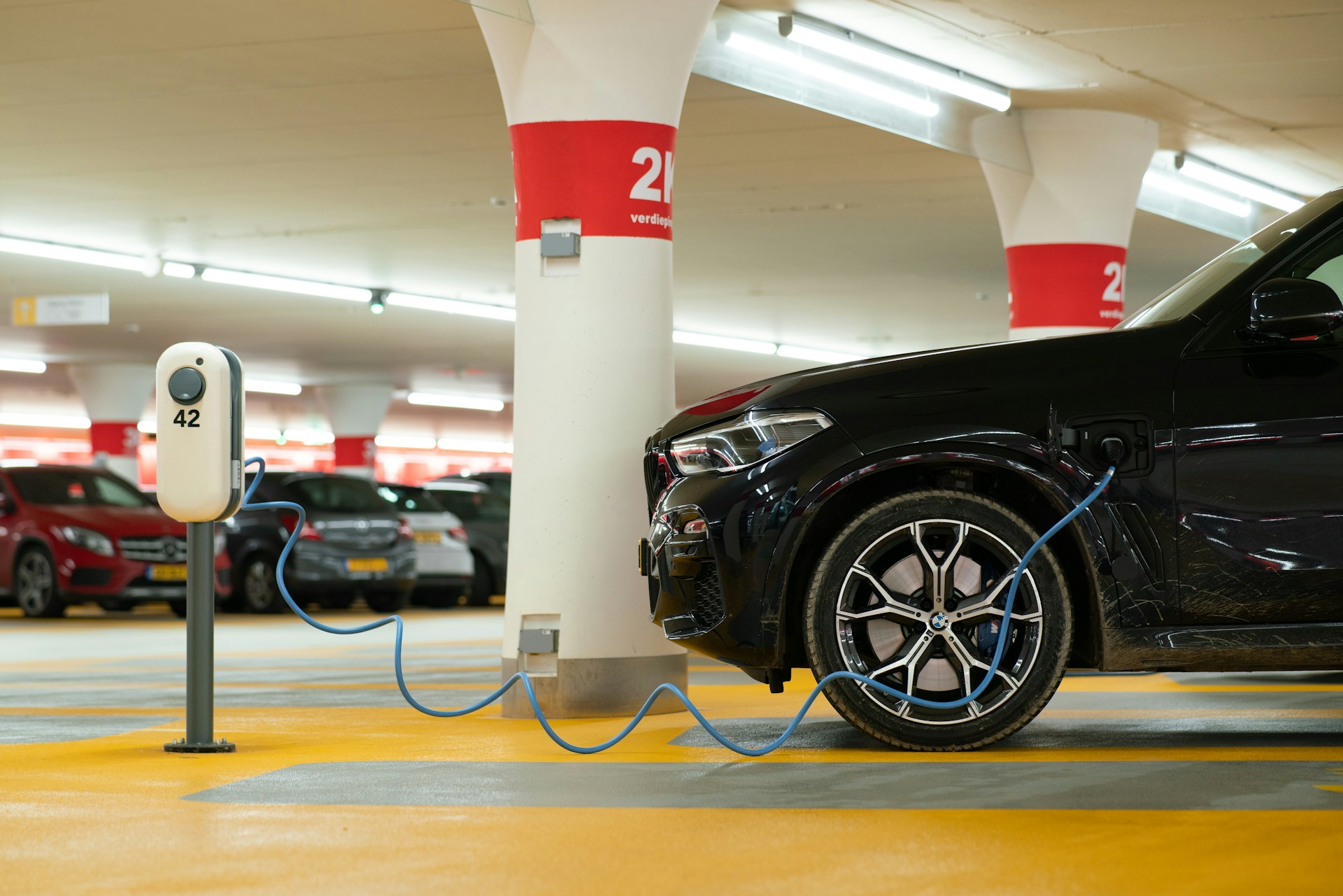



Revolutionized is reader-supported. When you buy through links on our site, we may earn an affiliate commision. Learn more here.
As moving away from gas-powered vehicles becomes a more accessible option, some people wonder about the dangers of electric cars and whether those issues should discourage them from making the switch. First, consumers must remember that nothing they purchase, use or do in life is completely risk-free.
Driving an electric car is not automatically more dangerous than using one that runs on gas. Both types have associated risks that people can mitigate by taking the necessary precautions after learning about them.
The individual cells in EV batteries can experience thermal runaway events, leading to fires and explosions. Short circuits trigger these problems, resulting from battery damage, improper charging habits and poor maintenance.
In this regard, some of the primary dangers of electric cars relate to blazes in enclosed spaces, such as underground parking garages. Researchers are eager to learn more about what happens when those fires occur and how people should reduce the risks.
One Austrian study investigated electric car fires and their effects. A main takeaway was that the potential risks were not significantly more critical than those associated with combustion engine vehicles. However, the research also indicated that the fire-related dangers of electric cars are highest in indoor, multilevel parking garages.
The researchers also identified the need to gather additional information about commercial-grade battery-electric vehicles, such as buses. Their work involved intentionally setting the cars on fire and using 30 temperature sensors to determine how quickly the blazes released heat. Those efforts showed the warmth in the area was still safe enough for firefighters to attend to the matter.
However, that changed when the entire battery was simultaneously and fully on fire. In such cases, the heat release spiked noticeably over a few minutes, suggesting first responders must carefully monitor the fire’s state and progression when tending to it.
Additionally, this research assessed the amount of toxic gasses emitted during these events. Although those involved found comparably higher levels of hydrogen fluoride and carbon monoxide associated with EV fires, one fortunate aspect was that the most significant concentrations floated up beyond the level of those putting out the blazes. That finding kept humans safer and meant the gasses did not block potential escape routes.
Unfortunately, these dangers of electric cars are not hypothetical. The fires can also spread to nearby vehicles, quickly creating larger issues. One example happened at an airport, where an EV caught on fire, spreading the flames to four other surrounding automobiles.
However, it is also important to remember that these fires are not unique dangers of electric cars. A strong case for that assertion involves the 2023 incident at London Luton airport that affected 1,500 vehicles. However, investigations determined that everything started with a diesel-powered car.
There’s also a related danger, seemingly brought about by people not understanding that electric vehicle fires are relatively rare. One father posted on social media that he was forbidden to park his EV in a hospital garage when taking his child for an appointment. A security guard told him the vehicle could explode and that none were allowed in that garage until a sprinkler system upgrade occurred.
Hospital representatives later released a statement clarifying that EV owners could still use the facility’s main parking area but not the one the parent had tried to enter. However, an image circulated showing an entrance sign reading, “NO ELECTRIC VEHICLES,” with no mention that they would eventually be allowed in the garage. That approach conveys the idea that the hospital is wholly against them without a specified reason
In any case, the people who must primarily concern themselves with these blazes are those tasked with putting them out. EV fires have specific characteristics that prevent firefighters from dealing with them the same ways they would if other vehicles were ablaze. The more professionals learn about these details and keep their knowledge current, the better protected they are from these dangers of electric cars.
The United States had more than 160,000 places to charge electric vehicles as of 2023. However, some people are concerned about more than the number. They also want to replenish their cars’ batteries in places that make them feel safe.
One woman in the United Kingdom experienced this during a 300-mile round trip and had to drive to several charging points before finding one that made her feel safe. The others visited before the one she ultimately chose were poorly lit, had little to no activity from other people and were not always staffed. Her challenges led her to start a business, ChargeSafe, which rates six charging station aspects on a five-point scale.
She also asserts that even one bad experience while charging an electric vehicle is too many. Indeed, some people — particularly females or those traveling alone — may resist stopping at specific stations that seem too risky. Such circumstances are often less common for gas stations, since many operate 24/7 and are almost always lit thoroughly.
Many humans dislike changes, and switching to an EV is a significant one for most. Gas-powered cars have become so embedded in modern society that some people would rather keep using them due to their familiarity. However, research also suggests that — among women — the lack of safe places to charge their vehicles could make them hesitate to purchase these options.
The study got perspectives from females in the United States and Canada, examining how charging stations influenced their overall feelings about owning EVs. The results indicated 43% of those in the United States and 30% in Canada had safety-related concerns.
Moreover, 40% of U.S. women said accessible, well-lit charging stations in well-populated areas would influence their vehicle purchasing decisions. The same was true for nearly half of the Canadians. Relatedly, 21% of those in the U.S. and 20% of Canadian respondents indicated tighter charging station security would positively impact their purchasing choices.
Whereas people interested in EV ownership commonly research range, prices and charger availability, the things on their minds won’t necessarily include the matters covered here. However, awareness is the first step to causing or supporting positive change.
Those who already have electric cars should always follow the manufacturer’s instructions for charging the battery. Additionally, they should get batteries checked for physical damage after even slight incidents that may have caused it. Those two simple but proactive measures can reduce the chances of thermal runaway events.
From a charging safety perspective, people should pay attention to related infrastructure updates in places where they live or frequently travel, advocating for EV charging stations to be in well-lit, populated locations that appear inviting and safe.
Revolutionized is reader-supported. When you buy through links on our site, we may earn an affiliate commision. Learn more here.


This site uses Akismet to reduce spam. Learn how your comment data is processed.